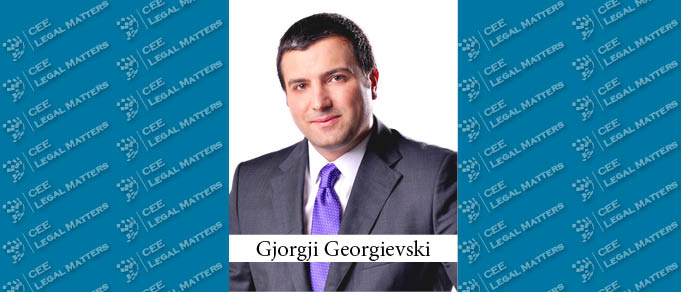With COVID-19 restrictions to kick in only after the municipal elections scheduled for October 17, the country is in for a long winter, according to ODI Law Partner Gjorgji Georgievski, despite the business sector doing well.
He says the pandemic restrictions “were lifted in June, last year, and we had minor restrictions till April 2021. He reports that stricter measures will come into force after the local elections scheduled for October 17. “The Ministry of Health announced that come October there will be restrictions. I assume the timing is related to the end of the elections. The numbers are increasing, we have the worst death rate in Europe (or close to). It’s not a pleasant situation health-wise.”
Business, on the other hand, has been good. “It’s been great,” Georgievski says. “For the past 12 months, we’ve had a large number of M&A transactions, including this summer, and we're also supporting clients on compliance with the new data protection regulations that came into force on August 24. We got an additional six-month extension until February 2022 – where the authority will not be imposing fines just yet – but there’s a lot of work to be done.”
Georgievski reports that energy, real estate, banking, and tech have seen a lot of activity. In the energy sector, “a number of projects are under development or will be developed shortly.” The real estate market has grown significantly compared to 2020: “real estate transactions saw a major increase – with the prices also going up, based on the price of materials and increased demand – for both commercial and residential properties.” The banks are doing well, as are insurance companies, Georgievski says, noting that Austrian GRAWE consolidated “with the acquisition of two smaller players with great positions on the market.” And investment funds are doing great, he says, “because of the low returns on bank deposits and small interest rates.” Finally, he says the tech sector is buzzing. “It’s been very bubbly, with a number of companies branching out to Macedonia. The sector is developing at a good rate and successfully: we had some M&A transactions last year, and more are in the pipeline. IT growth is the main factor buoying the Macedonian economy – other sectors may be larger, but the growth rate in IT is something else.”
Other sectors have not fared as well. On infrastructure, despite the announced completion of construction of new motorways and a railway corridor linking Macedonia and Bulgaria, “it’s hard to know when these projects will start moving,” Georgievski says. And hospitality is suffering, he notes: “they had the period with the curfew, restricted business hours – but now, the large percentage of the public that is unvaccinated will be unable to visit these establishments. Hospitality has been suffering since March 2020, and they may have a harder time of it this year.”
On legal updates, Georgievski mentions the legislation on strategic investments: “the country’s strategy is to create a favorable environment for foreign investors. We’ve seen many companies applying and receiving state aid, but more importantly, they receive full administrative support – on land issues and project permits, among others. There is a multi-sector group in the Government, which speeds up the process significantly.”
He mentions other amendments in the pipeline, in particular to the law regulating cannabis, “allowing small Macedonian growers to sell their crop abroad. While medicinal use of cannabis is already legal, there is also talk of legalizing recreational use further down the line.” Another new law that should have a significant impact is the law on the liberalization of payment services, implementing EU directives on electronic money. “This should allow third-party players like alternative lending providers to consider the processing of payments and create competition for a section of the banking sector – with the banks themselves also investing in their own platforms and products.”
Finally, Georgievski says he’s personally looking forward to “the 5G frequency tender, already announced by the regulator. There will be a bidding war.”
















